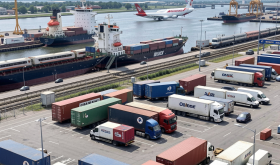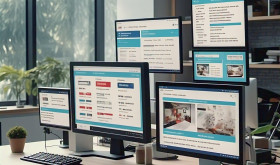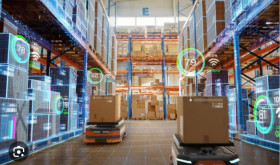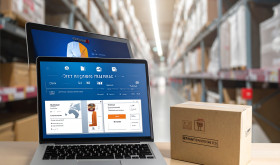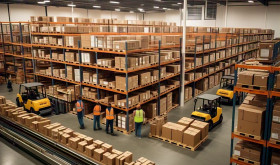
Today’s supply chain once a pretty straightforward process, has turned into a complex ever-changing network full of new challenges. From COVID-related issues to global politics and growing customer needs, companies are dealing with a maze of logistics. The warehouse sits at the centre of this struggle, and it can either make things worse or better. A robust Warehouse Management System isn’t just nice to have anymore – it’s a must-have tool to handle this turbulent situation and keep the supply chain going strong.
The supply and logistics troubles we’re seeing now come from a mix of things:
- E-commerce Boom: The rise of online shopping has put huge stress on warehouses. They now have to deal with smaller more frequent orders. This means they need to fulfil orders faster and with more precision.
- Supply Chain Instability: World events like trade fights natural disasters, and health crises have shown how fragile old-school supply chains are. This leads to empty shelves, shipping delays, and higher costs.
- Worker Shortages: Warehouses struggle to find and keep workers. This slows down operations and drives up labour costs.
- Complex Inventory Control: Managing many product types changing demand, and multiple sales channels needs smart inventory control. This helps avoid running out of stock or having too much on hand.
- Higher Customer Demands: Shoppers want quick shipping correct items, and easy returns putting huge stress on warehouses to deliver on these expectations.
The Warehouse Management System as a Strategic Solution:
In this environment, a Warehouse Management System serves as a digital command centre coordinating warehouse tasks and offering the insight and management needed to overcome these issues.
- Optimised Inventory Management:
- A Warehouse Management System gives businesses a clear view of their inventory in real-time allowing them to keep tabs on stock levels, locations, and movements.
- Smart features like cycle counting and ABC analysis help keep stock levels just right, cut down on stockouts, and lower storage costs.
- The system can track lots and expiration dates, which matters a lot in fields like food and medicine.
- Enhanced Order Fulfillment:
- Automating picking and packing tasks such as wave picking and zone picking, makes orders more accurate and speeds up the process.
- Linking up with shipping companies makes labelling and sending out orders smoother cutting down on mistakes and holdups.
- The Warehouse Management System has an impact on the put away process, and the picking process, to cut down the amount of travel time in the warehouse.
- Improved Warehouse Productivity:
- A Warehouse Management System makes better use of the warehouse layout and storage by making the most of space and cutting down travel time.
- Task management features help to assign resources well and boost worker output.
- The system can also help with cross docking work.
- Real-Time Visibility and Control:
- Dashboards and reporting tools give current insights into how the warehouse is doing letting managers make smart choices.
- Mobile device integration allows data capture and talking on the warehouse floor as it happens.
- The Warehouse Management System can show how workers are doing, and how much equipment is being used.
- Lower Labour Costs:
- Machines doing tasks like picking, packing, and put-away cut down on manual work.
- Better warehouse layouts and smoother workflows mean less walking and more output from workers.
- The system helps train new hires.
- Improved Customer Satisfaction:
- Getting orders right and on time makes customers happy and keeps them coming back.
- Seeing where shipments are in real-time gives customers more insight and control.
- The Warehouse Management System helps handle returns and reverse logistics.
Addressing Specific Supply and Logistics Challenges:
- E-commerce Demands: A Warehouse Management System with cutting-edge order fulfilment features, like pick-to-light and automated packing, can handle higher volume and intricacy of online orders.
- Supply Chain Disruptions: Tools to see inventory in real-time and forecast demand allow companies to foresee and proactive response to disruptions, reducing stockouts and holdups.
- Labour Shortages: Features to automate and streamline workflows lessen the need for manual work mitigating the impact of worker shortages.
- Inventory Management Challenges: Top-notch inventory management tools such as cycle counting and ABC analysis, help businesses keep optimal stock levels and cut down on storage expenses.
- Customer Expectations: Precise and quick order fulfilment, along with live tracking and shipping updates, boosts customer satisfaction and loyalty.
The Future of WMS in Supply Chain Resilience:
The Warehouse Management System landscape is set to evolve with deeper ties to cutting-edge tech like AI, machine learning, and robotics. This shift will turn warehouses into smarter more flexible, and hands-off operations. AI-driven demand predictions and stock management will help companies spot and tackle demand shifts more accurately. Robots will take over routine jobs letting people focus on more complex and strategic tasks.
What’s more, Warehouse Management Systems based in the cloud offer more room to grow and bend with changing needs. They also mesh well with other supply chain setups making the whole system work better together.
To wrap up, a robust Warehouse Management System is a key investment for companies looking to handle the ins and outs of today’s supply chain. By making inventory management better speeding up order fulfilment, and boosting warehouse productivity, a WMS can help businesses create a tougher and more flexible supply chain. This ensures they’ll keep thriving in a world that’s always changing.

